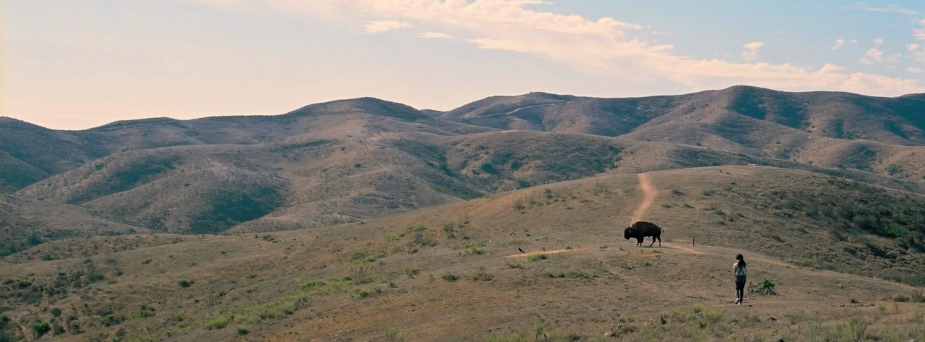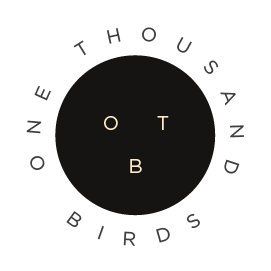
Camera Obscura: Why Jackie! Zhou Loves to Listen

Jackie! Zhou is the lead sound designer and mixer at One Thousand Birds LA. They love humans and connecting dots between individuals. Jackie! considers themself a multidisciplinary artist; she is keen on blurring the lines between formats and disciplines. From music videos to documentaries, her directorial work aims to explore and celebrate human experiences.
As a sound designer and mixer, Jackie! found a home at One Thousand Birds LA in October 2019. Her work has been presented at the Walt Disney Concert Hall, and the Oculus Plaza, and nominated for an Emmy.
LBB> What is your niche craft obsession?
Jackie!> I absolutely love field recording, and recording everything in general. I’m really obsessed with archiving and documentation and have always been a journal-er. Adjacent to that I just love listening, so I think eavesdropping and listening to the sounds of a space has always really excited me. When I started getting into sound and realised that recording ambiences is a huge part of it, it was really amazing to merge all those interests. I think field recording embodies taking really special snapshots of places.
LBB> Where/ when/ how did you first come across this thing?
Jackie!> Through working on ambiences! The first time I did was [when a] really good friend of mine was making a wildlife documentary on Catalina Island and I got to come along. I remember getting to experience this place just through sounds, because I was there to record anything that seemed potentially interesting. That was a fun entry point.
LBB> Was it an obsession straight away or something that has evolved over the years?
Jackie!> It definitely excited me straightaway. I recorded my wisdom teeth getting taken out even though I wasn’t going to use the sound for a project — it just was like, “Oh, this is a fun sound memory.” What’s really evolved is I've gotten less precious about how things are recorded, which I think is really common; when you start out, you think, “I have to record with the best microphones and no one can be talking.” I've realised that any sound can be usable or good or interesting, and a lot of recordings sound better if there's a bit of a rawness to it; you'd be surprised by how often I use an iPhone recording or a surreptitious recording that isn't super focused because it sounded just right.
LBB> What are the most interesting debates or conversations you are having around this obsession?
Jackie!> Specific to sound people, there are a lot of different philosophies of recording. Some people are really fixed to a certain setup and minimising variables, then other people are like, no you capture whatever's there. I get more excited by sounds that I record with very little control. Whenever I ride the bus I record, even though I don't know if I'll ever use those sounds. It’s just fun for me to think about what makes a memory and what makes a place.
A lot of field recording I've learned doing documentary work; with documentary, you always have that fuzzy line of what’s 'real?' For example, I worked on a short in rural Texas and recorded a bunch of house creaks — wood creaks that weren't necessarily in the same house of the documentary, but they still felt emotionally accurate to the place and space. That's always a conversation, especially with nonfiction work.
Another thing with recording public spaces is the idea of surveillance and consent. I'm always on the fence, because I really like recording everything, but when do you ask yourself “Is this an event that shouldn't be recorded?”
LBB> How widespread do you think this obsession is with your peers?
Jackie!> It’s pretty widespread. A lot of sound people I know wish they had more time to record and organise their libraries. There are so many different avenues to getting into sound, so I definitely know sound people who really could care less about recording. But I think most of us are excited about interesting sounds and the world we live in.
LBB> Can you share any examples of work where that obsession really came to the fore and elevated the final production? Can you tell us about it and share links if possible?
Jackie!> I worked on a documentary called United Skates, which is about different roller skating subcultures in America and how they're disappearing. It was really important that we didn't use stock library roller skating sounds, because skating sounds have a real specificity; we learned that LA skaters use a certain kind of wheel on a certain kind of rink, and it sounds really, really different from Chicago skaters. If you talk to any real roller skating head, they would be able to literally tell you the place or the style of skating just based on the sounds of someone's skates.
We ended up going to a few roller rinks in Southern California that were specific to subjects in the documentary, just spending time with them and recording the skate style of their communities. You can only access that sincere and intentional sound by going somewhere and field recording, as opposed to trying to rebuild it. So much of sound is the unintentional stuff that you can't plan, like the way people laugh or hoot and holler when they do something cool. I couldn't build that sound because I'm not fluent in that community. I think for people who are really excited about roller skating, it was another detail of the film that honoured each of these different characters in the movie. It's just so cool to get to be a part of that.
LBB> For anyone just getting into your field, what advice would you share to help them get their head around this particular thing?
Jackie!> Really practice parsing the world through sound. When you recall a place or person and remove the visuals, what are the elements left? If I’m teaching a class, one of the first things I’ll do is have students close their eyes, listen, and articulate what they hear. There’s sound everywhere, but a lot of people are intimidated because they don’t know how to talk about it. But, the more you listen, if someone asked you to sound design a museum, say, you wouldn't need to pull up a museum reference. You know that there are going to be sparse footsteps and hushed murmurs, because you’ve learned what elements actually build the ambience of a museum. The more you listen, the more fluent you are in terms of thinking about things through sound.

Jackie! on Catalina Island recording bison













